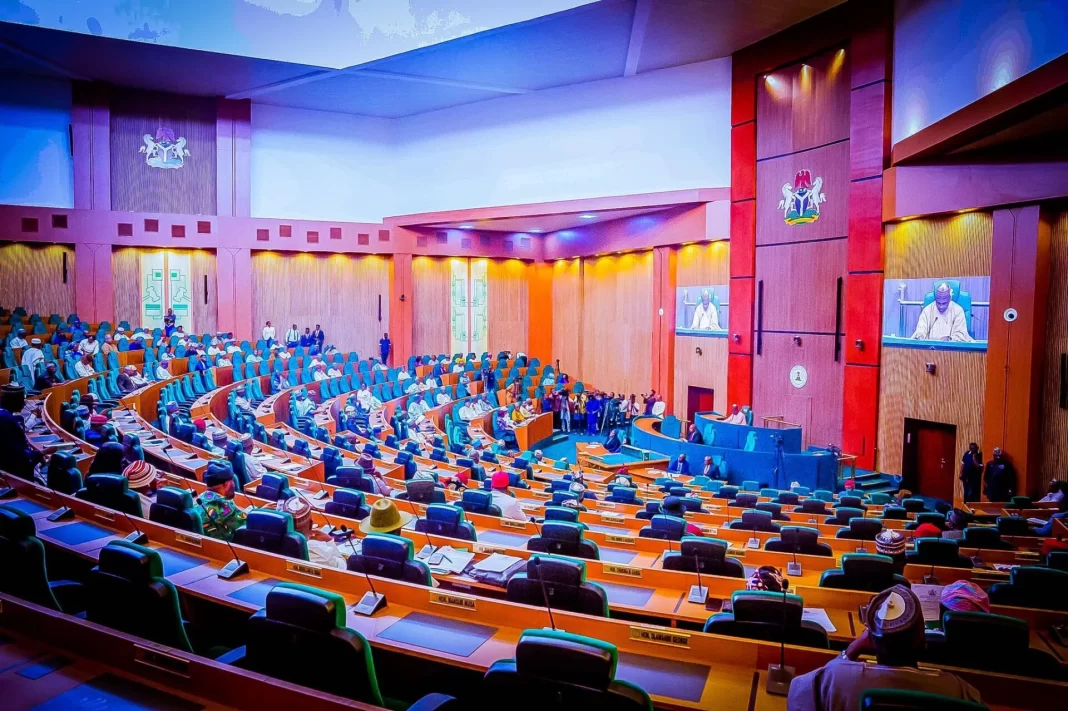The House of Representatives ad hoc committee investigating the National Hajj Commission of Nigeria (NAHCON) over the 2024 Hajj exercise has found the commission guilty of multiple violations.
The committee, chaired by Sada Soli, who represents Jibia/Kaita Federal Constituency in Katsina State, presented its findings and recommendations to enhance future Hajj management.
The probe was initiated on July 14, 2024, during a plenary session led by Speaker Tajudeen Abbas.
It followed a motion sponsored by Omar Bio of Buruten/Kaima Federal Constituency in Kwara State, prompting a review of NAHCON’s operations alongside the Federal Capital Territory Administration Muslim Pilgrims Board.
The federal government, under President Bola Tinubu, allocated a N90 billion subsidy for the pilgrimage in May 2024.
However, the move was met with public outrage, as many Nigerians argued that the funds could have been better used to address pressing national concerns, especially in light of economic hardships caused by the removal of fuel subsidies.
Despite the government’s financial support, state governors criticized NAHCON’s handling of key aspects, including accommodation in Muna and the inadequate Basic Travel Allowance for pilgrims.
The situation led to the dismissal of NAHCON Chairman Jalal Arabi in August 2024. He was replaced by Abdullahi Usman following allegations of corruption, with the Economic and Financial Crimes Commission (EFCC) implicating both Arabi and NAHCON Secretary, Abdullahi Kontagora, in a fraud scandal.
The committee’s findings, detailed in a report obtained by The PUNCH, exposed financial mismanagement, logistical inefficiencies, and a lack of transparency.
Pilgrims reportedly paid up to N9 million each without a clear breakdown of charges, while the N90 billion subsidy was distributed without a transparent allocation process.
The report also highlighted that NAHCON transferred the entire subsidy to offshore accounts in Saudi Arabia without proper tracking mechanisms.
Accommodation for pilgrims, particularly in Mina and Arafat, was inadequate despite high fees, with severe overcrowding in the VIP section due to Saudi Arabia’s policy changes.
Additionally, licensed tour operators accused NAHCON of unfair pricing discrepancies between private and state-sponsored pilgrims, straining coordination and trust.
The investigation also scrutinized Nigeria’s Bilateral Air Agreement with Saudi Arabia, which mandates that Saudi airlines handle 50% of Nigerian pilgrim airlifts.
Lawmakers questioned the impact of this policy on local airlines and urged regulatory agencies to review its fairness.
Further concerns were raised regarding transportation logistics, as pilgrims experienced long delays moving between Makkah, Mina, and Jeddah.
Elderly pilgrims suffered the most, with inadequate provisions for their movement, leading to distressing conditions.
The report also uncovered financial mismanagement within the FCT Muslim Pilgrims Welfare Board, where more officials than budgeted attended the pilgrimage, causing financial strain.
Additionally, the Central Bank of Nigeria’s role in handling the Personal Travel Allowance was examined.
The CBN acknowledged challenges due to fluctuating exchange rates and resistance to electronic payment systems, which ultimately led to 100% cash disbursement, increasing operational difficulties for commercial banks.
The committee recommended stronger regulatory oversight, improved transparency in NAHCON’s financial dealings, and enhanced coordination between NAHCON, state boards, and private operators to ensure a more efficient Hajj experience in the future.
